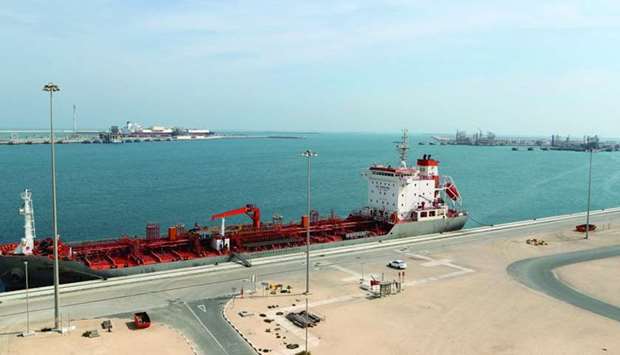Gas-rich Qatar will be able to achieve "strong" fiscal surpluses for the foreseeable future even if hydrocarbon prices are low, a new report has shown.
Government expenditure of the gas revenues would continue to underpin Qatar’s wider economy, Dun & Bradstreet said in its latest country report.
On the basis of a “significant increase” in Qatar's already-large gas reserves, the researcher has revised the country’s risk rating upwards to ‘DB2d’ with an “improving outlook” and also lifted the credit environment outlook to 'green'.
Last month, Qatar announced that appraisal work in recent months had found that the North Field extends further than previously thought, and had dramatically boosted estimates of the field's gas and condensates reserves, now stated to be 1,760tn cubic feet and 70bn barrels of condensates.
This was a result of new appraisal drilling which extended the geographic scope of the gas field, including finding that it extends for at least 12km onshore from Ras Laffan (where the industrial and export facilities are located).
On the basis of these additional finds, Dun & Bradstreet said the North Field Expansion Project is being upsized by a further 50%, adding two more 8m tonnes per year (tpy) trains by 2027, meaning that the total expansion plan is now 49mn tpy to 126mn tpy, a 64% increase on the nominal current capacity of 77mn tpy (which has been unchanged since 2011).
The first of the new trains is still slated to come on-stream around 2024, with additional ones starting up in the months that follow. Even before this revision and the additional trains, the LNG expansion project pointed to very strong long-term economic potential for Qatar.
“Even with the new capacity, the reserves-to-production ratio is expected to be well over one century, which suggests that there is space for more gas production in the late 2020s and early 2030s.
“As a result, even if hydrocarbon prices are low, Qatar would be able to achieve strong fiscal surpluses for the foreseeable future and government expenditure of the gas revenues would continue to underpin the wider economy,” Dun & Bradstreet noted.
Although energy-price volatility is an issue, it said "Qatar has the resources, including through its sovereign wealth fund, to inject liquidity as required."
On the blockade by the four Arab countries, the report said, “Qatar has largely overcome its economic impact and found new trade routes and sources of financing, limiting risks.”
On the basis of a “significant increase” in Qatar's already-large gas reserves, the researcher has revised the country’s risk rating upwards to ‘DB2d’ with an “improving outlook” and also lifted the credit environment outlook to 'green'.
Last month, Qatar announced that appraisal work in recent months had found that the North Field extends further than previously thought, and had dramatically boosted estimates of the field's gas and condensates reserves, now stated to be 1,760tn cubic feet and 70bn barrels of condensates.
This was a result of new appraisal drilling which extended the geographic scope of the gas field, including finding that it extends for at least 12km onshore from Ras Laffan (where the industrial and export facilities are located).
On the basis of these additional finds, Dun & Bradstreet said the North Field Expansion Project is being upsized by a further 50%, adding two more 8m tonnes per year (tpy) trains by 2027, meaning that the total expansion plan is now 49mn tpy to 126mn tpy, a 64% increase on the nominal current capacity of 77mn tpy (which has been unchanged since 2011).
The first of the new trains is still slated to come on-stream around 2024, with additional ones starting up in the months that follow. Even before this revision and the additional trains, the LNG expansion project pointed to very strong long-term economic potential for Qatar.
“Even with the new capacity, the reserves-to-production ratio is expected to be well over one century, which suggests that there is space for more gas production in the late 2020s and early 2030s.
“As a result, even if hydrocarbon prices are low, Qatar would be able to achieve strong fiscal surpluses for the foreseeable future and government expenditure of the gas revenues would continue to underpin the wider economy,” Dun & Bradstreet noted.
Although energy-price volatility is an issue, it said "Qatar has the resources, including through its sovereign wealth fund, to inject liquidity as required."
On the blockade by the four Arab countries, the report said, “Qatar has largely overcome its economic impact and found new trade routes and sources of financing, limiting risks.”


